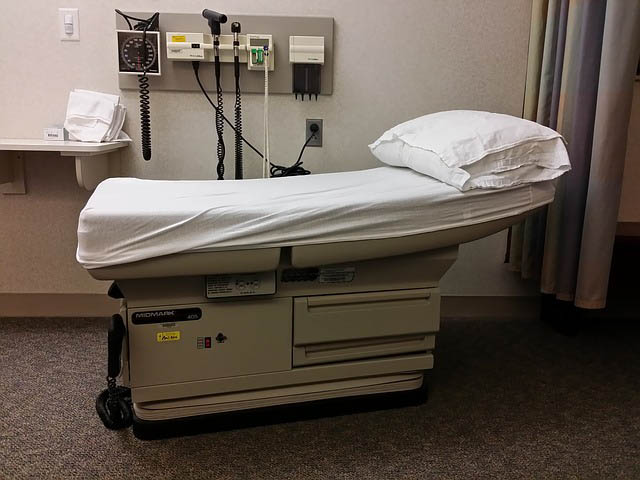
Uterine fibroids are non-cancerous (benign) tumors that grow in the uterus. A fibroid occurs when a single muscle cell in the uterine wall multiplies and grows and forms a benign tumor. Uterine fibroids are common and affect 20% of women who are childbearing age. Within the African American community fibroids are two to four times as common.
If you have fibroids, your doctor typically finds them in, on or around your uterus. 55% are found in the outer wall, 40% within the muscular layers of the uterus and 5% protrude into the cavity of the uterus. Sometimes fibroids grow in the cervix. Rarely are fibroids found outside of the pelvic area.
Doctors believe fibroids come from a combination of hormonal, genetic and environmental factors but there is no definitive cause of uterine fibroids. Depending on their location, size and number, these noncancerous tumors cause pain, bleeding and infertility and greatly impact your quality of life.
Symptoms of Fibroids
Many women have uterine fibroids but no symptoms. Other women experience painful and difficult symptoms such as:
- Heavy bleeding during period
- Passing large clots with period flow
- Painful cramps during period
- Spotting or bleeding between periods
- Lower back pain
- Anemia
- Frequent urination
- Constipation
- Painful intercourse
- Recurring loss of pregnancy (miscarriage)
- Infertility
Fibroids Impact on Fertility
The presence of fibroids doesn’t indicate infertility in most cases. Approximately 5%-10% of infertile women have fibroids according to the American Society for Reproductive Medicine. Some fibroids, depending on how large they are and where they are located, contribute to fertility issues. Here’s how:
- Fibroids that block the fallopian tube and prevent fertilization
- Changes in the shape of the cervix due to fibroids prevent the number of sperm that enter the uterus.
- The shape of the uterus changes preventing the spam from fertilizing the egg or preventing the embryo from attaching.
- Fibroids may affect the size and thickness of the uterine lining.
- Fibroids may prevent blood flow to the uterine cavity and prevent the embryo from implanting.
Those who experience difficulty trying to conceive after one year of regular, unprotected intercourse (six months if you are over 35) should schedule an appointment with a fertility specialist. If uterine fibroids are the suspects of your infertility, there are treatment options that may help.
Treatment Options for Fibroid-Related Infertility
For those who suffer from the symptoms of uterine fibroids, there are hormonal medications to help control them. However, if you are actively trying to conceive hormonal therapy isn’t an option. The reason is that the hormones used interfere with ovulation. Additionally, your doctor prescribes these medications for no more than six months and once the medication stops the uterine fibroids resume their growth. Your doctor uses hormonal meds, for the most part, to shrink the fibroids so they can remove them surgically.
Women who experience severe symptoms that interfere with quality of life or those whose fibroids are very large are usually recommended for a hysterectomy. For women who want children and wish to restore their fertility, obviously a hysterectomy isn’t an option. In that case your fertility specialist may suggest one of the following procedures.
- Myomectomy: In a myomectomy the doctor removes the fibroids but leaves the uterus in place. Depending on the size and location of your uterine fibroids, your doctor may perform laparoscopic surgery or an open procedure. If the uterine fibroids return you may need additional surgeries at a later date.
- Submucosal Myoma Resection: Some fibroids grow beneath the mucosal layer of your uterus and protrude into the cavity. A procedure called a resection is necessary to remove this type of fibroid. Your doctor performs the resection using a hysteroscope, a long, very thin telescope-like device. The doctor inserts the device through your vagina and into your uterus. This procedure is much less invasive than other options. Depending on the extent of the hysteroscopic surgery your doctor may prescribe a cycle of hormone therapy to assist with the regrowth of the uterine lining.
Surgery May Not Always be Necessary
In some cases, your doctor will simply observe any small fibroids that don’t cause any symptoms. Not all fibroids grow large enough to interfere with pregnancy. However left unchecked some fibroids will interfere with your pregnancy, and you may risk miscarriage or preterm delivery. However, treatment for all cases depends on diagnosis. Your doctor will advise you on the best option.
If You Suspect Fibroids Affect Your Fertility
If you suspect you may have fibroids that impact your fertility, or if you have any other fertility concerns contact LA IVF for a consultation. Together we will work toward a solution to your infertility and help you realize the life you dream of.










